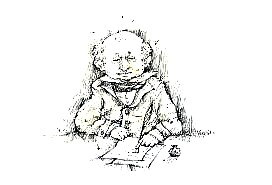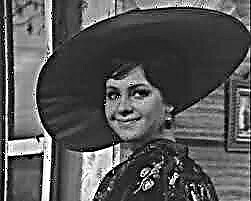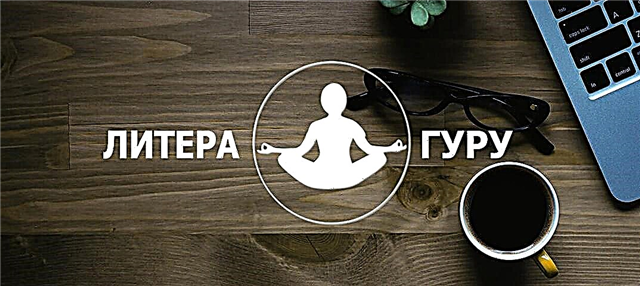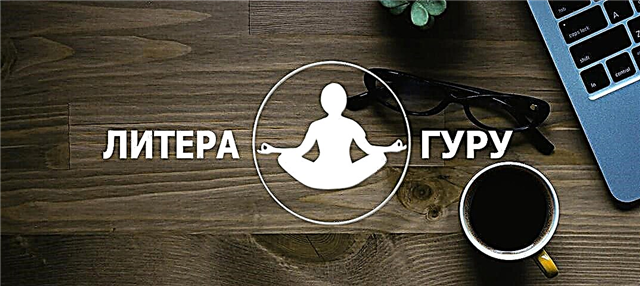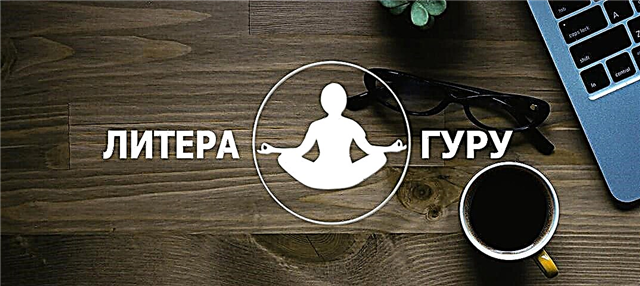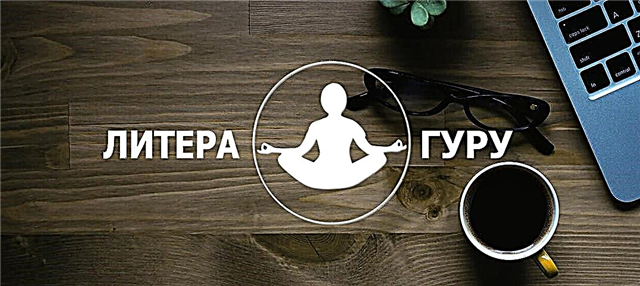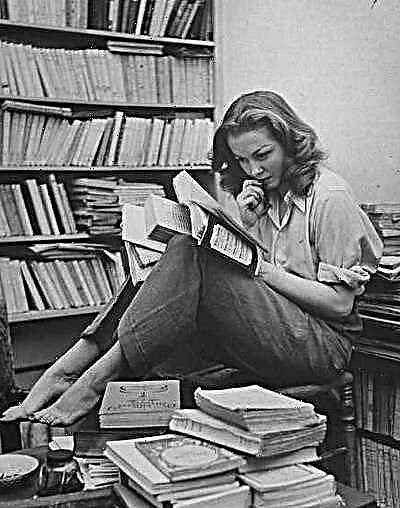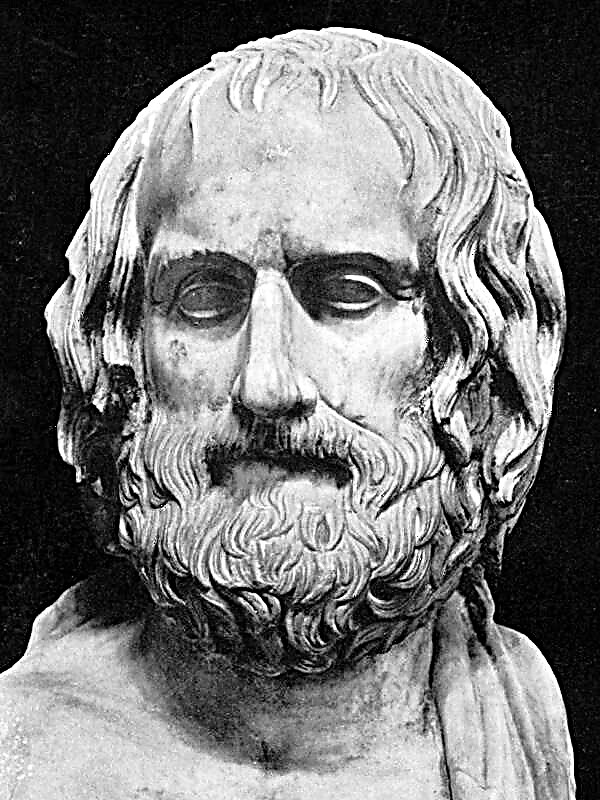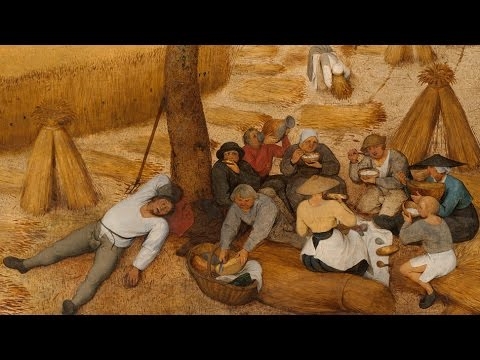The events of World War I are reflected in the works of many writers. A.A. did not stand aside. Block. His poem “Scythians” actualizes many problems, the solution of which is necessary for the reign of peace on earth.
History of creation
“Scythians” is one of the last works created by A. Blok. It was written over several days and a week later saw the light in the newspaper “Banner of Labor”. Unlike the Twelve, Blok read this poem in public, his speech took place in the hall of the Technological Institute in 1918.
The poem was created during the difficult period for the country - military and revolutionary. The Scythians were the poet’s reaction to the futile peace negotiations with Germany. The block was keenly worried about the events of 1917-1918, about which he wrote in his diaries and what the works devoted to.
The epigraph of the poem is the lines from the poem of Vl. Solovyov's “Pan-Mongolism”.
Genre, size, direction
"Scythians" belong to the genre of poem. The work contains epic and lyrical features, which makes it multifaceted. The poem, by definition, is an epic genre, this allows Blok to develop the idea of Russia's role in the world on the basis of material events that are epoch-making for the country. “Scythians” were written with versatile iambic, which makes verses energetic and chased. It is the rhythm that allows the poet to give the text an incentive character.
It is not without a political context, which refers to the direction of civic poetry. This tradition in Russian literature goes back to such authors as Lomonosov, Sumarokov, Trediakovsky.
The meaning of the name
The direction set by the philosopher Vl. Soloviev in 1894 - pan-Mongolism. This movement advocated the idea of uniting all the Mongolian peoples into a single state, more powerful than Europe, capable of retaliation.
Not only the epigraph to the poem, but also its name carries a reference to the ideas of the thinker. Scythians are the name of the ancient nomadic tribes from which many modern peoples descended. The meaning of the name is to appeal to historical memory. The bloc requires that we know who we are, who our ancestors are. It is important to understand that belonging to the East, to the wild, unbridled "Asian" is not a flaw, not something that should be shy. This is where our strength lies.
Images and Symbols
From the first lines of the poem, Blok creates the image of the Asian people - Scythians. It is no coincidence that he contrasts the word "millions" - "darkness", used in relation to the Tatar-Mongol horde. The Scythians are furious, full of courage, accumulating for centuries.
Black blood symbolizes kinship, the unity of us and this ancient people. Black color is also not accidental: it means anger, the desire to take revenge, to rebel.
Following this idea of the people, the image of the Sphinx arises. This is motivated by two factors: mystery and the mission of the keeper. The traditions of the Scythians are rooted in distant centuries, because the mentality of this ethnic group is incomprehensible to the European. Blok is sure that they are still characterized by spontaneity and an archaic worldview:
We got used to grabbing under the bridle
Playing horses zealous
Breaking horses with heavy sacra
And pacify the slaves of the obstinate ...
Themes and Issues
The subjects and problems of the work are epic in scope.
- People. The theme of the people is declared in the first lines of the poem. The poet speaks of unity, cohesion, the connection of generations. It is the people as a whole, and not the individual, who are important for the author, because he urges us to remember what unites us - kinship, blood ties, strength and passion of mentality.
- Dignity. Blok writes about a people who have not lost their pride, the ability to stand up for themselves and prove themselves, despite the endless humiliation that had to endure. Moreover, resistance accumulated and itself became a threat to the oppressors.
- World. The poet declares that we, the Scythians, are giving up our historical role - protecting Europe from enemies from the East. The state no longer wants to maintain peace for those who do not value it.
- Oedipus. It is no accident that the author turns to the myth of Oedipus. Blok warns that defiant ignorance of what was intended could turn into a catastrophe. Europe, like an ancient character, is one step away from the unintentional commission of a fatal crime.
Idea
The poem "Scythians" A. Blok, as it were, draws a line under the terrible events of the First World War. The main idea of the work is that the world is fragile, it is easy to destroy it, sometimes even unintentionally. No nation has the right to dominate another. The "old world", built on hierarchical principles, will perish if it does not give up conservative views.
Come to us! From the horrors of war
Come in a peaceful embrace!
Before it's too late - the old scabbard sword
Comrades! We will become - brothers!
The meaning of the poem is to warn everyone about the impending new power, the power of the people with which Europe will have to reckon, otherwise a catastrophe is coming.
Means of artistic expression
To give greater sonority, musicality and imagery to the poem, Blok uses various artistic techniques:
- Comparisons. The author compares proud Scythians with obedient slaves, emphasizing the humility of the people and their loyalty to their historical duty - to protect Europe from the Mongols. The western part of the continent itself is compared with Oedipus, who was destined to make fatal errors. The main function of this mapping is a warning. Russia is compared with a shield.
- Epithets. Vibrant epithets help create whole, unique images. Such are the opposed Scythians and Europe. The first Blok calls Asians "with slanting and greedy eyes", and the lira of this wild people is barbaric.
- Metaphor. The key metaphor of the poem is the “brotherly feast”. This is the truce called for by the poet. Sphinx is also a metaphor meaning mystery, mystery of the Scythians.
- Antithesis. This is one of the main tricks. The contrast is manifested both at the micro and macro levels of the text. For example, the opposition of civilized, developed Europe and the unbridled Scythians, and the "steel machines" of the West are opposed to the wild Mongol horde. The poet also considers two outcomes of an emerging conflict: a fraternal feast or war. At the micro level of the text, the antithesis sounds in the first line of the second quatrain - a century-hour.
- Anaphora. Anaphora is found at the beginning of the ninth and tenth stanzas, only the verbs “remember” and “love” vary. Also, this technique is used in the last quatrain, which makes the final solemn.

